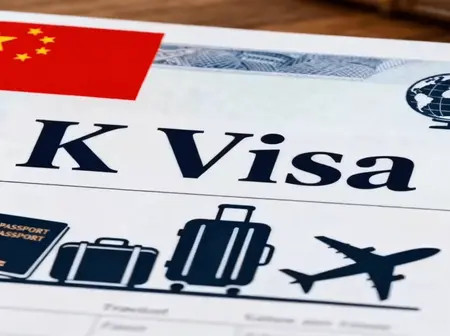China kicked off Wednesday a new visa programme aimed at attracting foreign talent in science and technology, part of ongoing efforts to position itself as a world leader in those sectors ahead of the United States.
The Chinese measure, announced in August, stands in stark contrast to recent US policy, with the Trump administration suddenly introducing new and expensive changes to its own skilled worker visas last month.
China’s new K visa significantly simplifies the immigration process for those eligible, according to state media.
“Against the backdrop of some countries retracting, turning inward, and sidelining international talent, China has keenly seized this important opportunity and promptly introduced this policy,” state newspaper People’s Daily said in a comment piece on Tuesday.
In contrast to many other visa categories, the K visa does not require a domestic employer or entity to issue an invitation to the applicant.
“K visas will offer more convenience to holders in terms of number of permitted entries, validity period and duration of stay,” state news agency Xinhua reported in August.
The official description for those able to apply is “young foreign scientific and technological talents”, but the exact age, educational background and work experience requirements needed are as yet unclear.
Xinhua said visa-holders will be able to “engage in exchanges in fields such as education, culture, and science and technology, as well as relevant entrepreneurial and business activities”.
Across the Atlantic, the US tech industry has been rattled by unexpected changes made by the Trump administration to the H-1B visa procedure.
H-1Bs allow companies to sponsor foreign workers with specialised skills — such as scientists, engineers, and computer programmers — to work in the United States for three years, with a possible extension to six.
Such visas are widely used by the tech industry, but the new H-1B visa policy now requires a one-time $100,000 fee.
Indian nationals account for nearly three-quarters of the permits allotted via a lottery system each year.
The People’s Daily article on Tuesday pushed back at what it called “strange rumours” around the new visa creating “immigration problems” in China.
“The so-called “immigration crisis” will not materialise, we should have cultural confidence,” it said.
– AFP

Leave a Reply